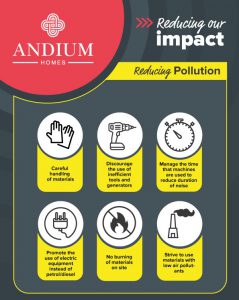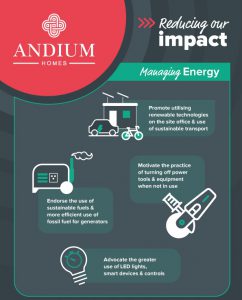We are committed to reducing our impact from construction activity on the environment and local community. Sustainability in construction means engagement among employees, local communities, clients and the supply chain in order to deliver developments that are less resource dependent, whilst working in harmony with environmental systems that benefit all society’s current needs in the built environment.
The construction industry is responsible for environmental impacts that include air emissions, waste generation and the use of land, water and energy. The construction period of a building only represents a small percentage of the overall life-cycle impact of the building. Nevertheless, the construction period has the greatest negative connotation with the local community. The Considerate Constructor Scheme aims to improve the image of construction, demonstrating the social value created by construction and thereby displacing this pre-conception.
Find out how our contractors are doing in achieving the standard that has been set by us for the Considerate Constructor Scheme.
Biodiversity
During the period of construction, the biodiversity for the site is lost and the construction activity has a negative impact on the surrounding ecology. These impacts can be reduced through management.
Pollution
Construction sites can be a major source of pollution from the use of combustion engines causing noise, vibration and air pollution. If they are not managed and controlled properly they can have an adverse impact on health and the local environment.
Energy
The construction industry is an energy intensive industry, mainly based on the combustion of fossil fuel leading to significant emission of carbon dioxide as well as other pollutants. If the use of energy is managed properly, energy use and its associated impacts could be reduced significantly.










